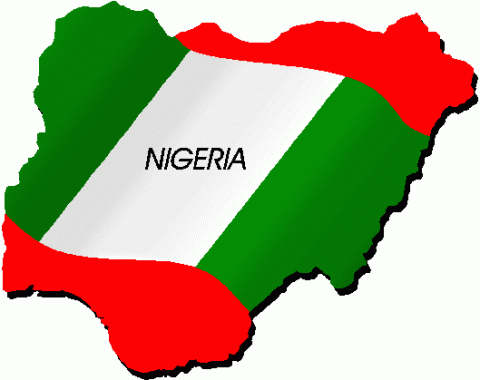Confab: 492 citizens to decide nation’s fate

•Parley to last 3 months
•FG gives 21 days for submission of members
From IKENNA EMEWU, AbujaThe Federal Government yesterday unveiled the details of the National Conference that would hold in Abuja to deliberate on the fate of the nation and her citizens.
At the briefing, where the government announced the plans, Secretary to the Government of the Federation (SGF), Senator Anyim Pius Anyim, said that all stakeholders have 21 days to submit the list of their delegates that would eventually make up the body of 492 members, who are to commence sitting as soon as the list is ready.
Anyim said that the conference would sit for three months within which it would wind up and submit its conclusions for further action.
He explained that the fate of the panel’s recommendations would be determined by the body that also has the mandate and powers to advise the Federal Government on what to do with it.
Before revealing the details of the conference, the SGF registered the gratitude of the Federal Government to the conference’ pilot committee, for surpassing its mandate on the groundworks to inaugurate the body.
Anyim said: “The Federal Government is satisfied that the committee has diligently discharged its task to the nation and posterity. This is more so, as one recalls the foundational principles of their assignment as espoused by President Goodluck Jonathan at the inauguration of the committee.”
The committee was set up in October last year.
Anyim explained: “The body shall be known as the National Conference and shall sit in the Federal Capital Territory (FCT) . It shall also have powers to deliberate on every issue concerning the existence of the nation with just one exception, the unity and continued existence of the nation.
“The National Conference shall advise the government on the legal framework, legal procedures and options for integrating the decisions and outcomes of the national conference into the constitution and laws of the country.”
The membership of the body would be drawn from 27 stakeholder groups as itemised by the SGF. The groups include ethnic groups or nationalities, the Federal Government, the state governments, traditional rulership institution, labour groups, the civil society, professional bodies, women groups and bodies, the Nigerian youths, student unions and the organised private sector.
Other constituent segments of the nation to contribute members to the National Conference are political parties, Christian and Muslim leaders, Nigerians in the Diaspora, social/political and cultural groups, the academia, former political office holders, the local government chairmen, people living with disabilities and others.
The nation’s elder statesmen would contribute 37 members to be nominated by President Jonathan with geographical spread while the ethnic nationalities would send 90 delegates segmented into the six geopolitical zones. The breakdown is that each geopolitical/ethnic zone delegates 15 persons to represent it. Also, there is provision for 13 traditional rulers, with each geo-political zone sending two and the FCT having one slot.
The state governments and the FCT would also raise 109 delegates with each state having three slots and one for the FCT. For any state where the government fails to nominate delegates, the president shall apply his powers and pick such delegates.
The Federal Government as a body will be represented by 20 delegates whom the president shall himself nominate to the conference.
…Timetable: Nigerians react
By RAZAQ BAMIDELE
Mixed feelings greeted the timetable for the National Conference released yesterday by the Federal Government.
Former governor of the old Kaduna State, Alhaji Balarabe Musa, described the exercise as, “a waste of time, energy and resources,” wondering why, “the President, who is also a guilty person in the negative nature of this country, will nominate delegates into the dialogue.”
He said that, “the value of the exercise has been destroyed and its credibility lost,” insisting that, “the way the committee members were nominated abinitio, was undemocratic and thus, nothing positive can come out of it.”
But the National Coordinator of the Oodua Peoples Congress (OPC), Otunba Gani Adams, described the emergence of the timetable as a positive development, but warned that, “the whole exercise should be sincere and transparent.”
Adams reasoned that nothing could be more acceptable because according to him, having opportunity to address the ills of the country should always be a welcome idea by all wellmeaning Nigerians. However, he warned that, “the Federal Government should not infiltrate the exercise to divert the attention from the basic issue of restructuring the country.”
Also, leader of Ike Aka Ikenga, Chief Goddy Uwazuruike, in his reaction, commended President Goodluck Jonathan for taking the initiative for the dialogue, saying that the modality for the composition was all-encompassing.
While endorsing the modality for nomination of delegates to the conference, Uwazuruike maintained that “Mr. President has taken the bull by the horns by not being deterred by detractors.”
But radical lawyer and human rights activist, Bamidele Aturu, was suspicious of the Presidency’s involvement in nomination of delegates to the conference.
“That compromises my position that the Presidency should not be involved in the nomination of delegates to the conference,” he said.
According to him, the modality to choose delegates, especially from the civil society groups, could be suspect because there are many phony human rights groups around. He however, expressed apprehension that the timetable might clash with the timetable for the elections and thus, truncate orderly political transition in 2015.
Source: Sun
